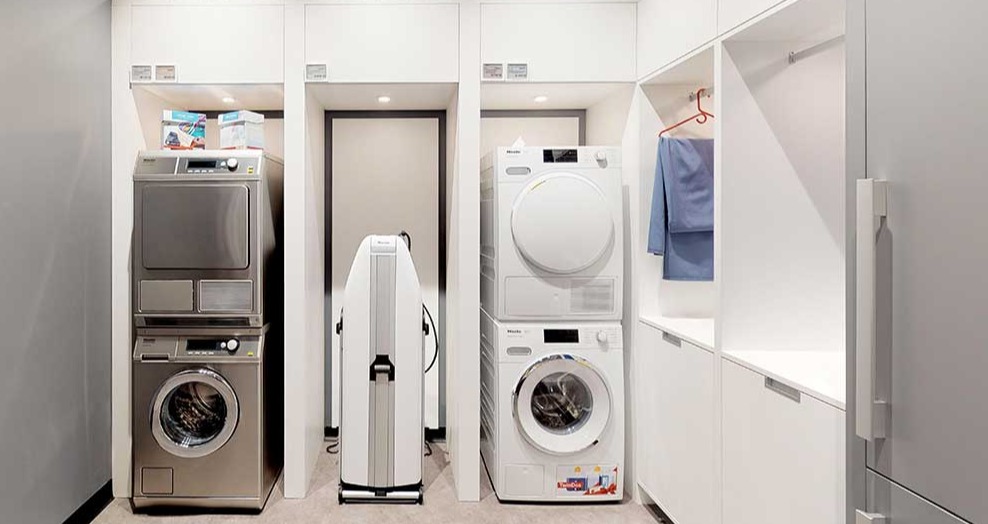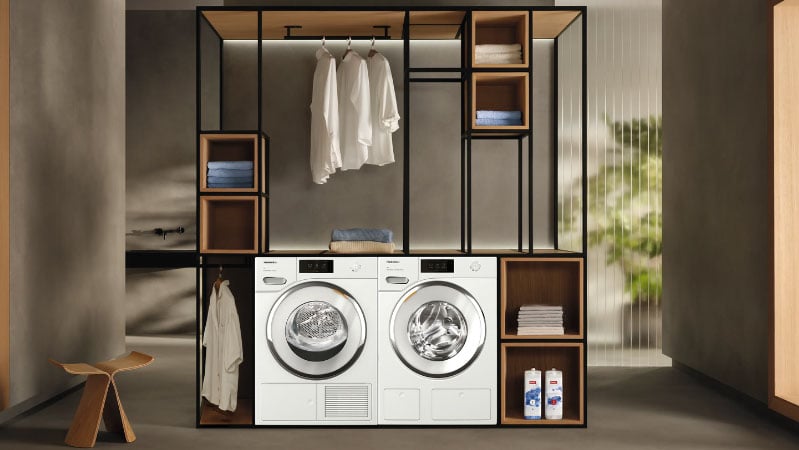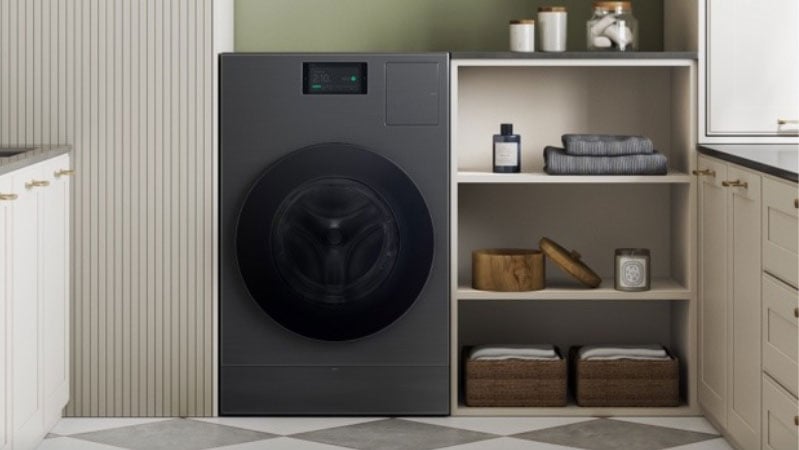
Heat pump dryers are, without a doubt, one of the best purchases for efficiency and return on investment.
You might not realize it, but your dryer is the second-largest electricity user in your home—right after your HVAC system.
Buying a heat pump dryer is a smart choice—unless it isn’t reliable.
If it breaks, you likely won’t be able to fix it.
In this article, you’ll learn about the reliability of heat pump dryers based on real service calls, as well as the most common issues.
It’s a bittersweet start for such a promising piece of technology, but knowing the facts upfront is far better than finding out the hard way later.
Why Trust This Article
This article is the only place you’ll find real data on how appliances actually perform in homes.
We don’t rely on lab tests, surveys, or what’s often misrepresented as “reliability” these days.
We also don’t take commissions from the brands mentioned or earn money from affiliate links that direct you to truly terrible places (seriously, check the reviews) to buy appliances.
These reports are designed to help our clients—and you—make the best possible decisions for your home.
We also use this data to identify and discontinue less reliable brands, reducing our service expenses along the way.
A History of Heat Pumps: 1856–2024
Many “new” technologies in appliances today aren’t actually new.
Take induction cooking, for example—it was first marketed in the 1950s.
Heat pumps go back even further, invented in Austria in 1856—four years before the Civil War.
The first widespread use of heat pump systems came in refrigeration during the 1920s.
Later, heat pumps gained popularity for their efficiency during the 1970s energy crisis, prompted by OPEC and rising energy costs.
Electrolux was the first manufacturer to design a heat pump dryer in 1997, although it was limited to smaller, compact laundry units.
Strangely, they no longer offer a heat pump dryer in the U.S.
Miele eventually became the first brand to fully transition to heat pump dryers in 2017.

Today, most companies offer heat pump laundry options, primarily in compact sizes. Looking ahead, you can expect to see larger models becoming more widely available.
What Is a Heat Pump Dryer?
First, let’s take a look at how a standard vented dryer works.
A vented dryer pulls in air from the room, heats it with traditional heating elements, and vents it outside.
Your hair dryer works similarly, except it pushes the hot air back into the room, like older condenser dryers.

A heat pump dryer, on the other hand, recycles the same air.

The compressor heats the air, passes it through an exchanger, and then an evaporator removes the moisture.
This process happens continuously in a closed-loop system.
Why You Should Consider a Heat Pump Dryer

Heat pump dryers don’t require venting, making them the go-to choice for many high-rise towers and buildings, like those in the Seaport.
This process is much more efficient than a vented dryer, leading to significant cost savings—especially in states with high energy costs.
Hello, Massachusetts residents.
With energy costs here at about 27 cents per kWh, last year I estimated the savings to be around $150 annually.
But there’s a hidden issue with heat pump laundry that most people don’t know about yet.
Most dealers won’t tell you—either because they don’t know or simply never will.
Why Your New Heat Pump Dryer Won’t Be Fixed

At one time, Sears dominated the appliance world.
Laugh if you want now, but over 50% of all appliances sold in the U.S. were Sears Kenmore at one point.
They also operated the largest service fleet in the world.
Sears Service repaired every appliance, unknowingly setting the training standards that many appliance stores still use today.
Every large service agency, including ours, relies on specialists.
If your dryer breaks, they send out a dryer specialist.
This system works well, giving you and me a better chance of getting the problem fixed on the first visit.
But heat pump dryers aren’t exactly dryers.
They’re more like refrigerators, with components like a compressor, heat exchanger, and evaporator.
This creates a unique challenge: you’d need a refrigerator technician who understands dryers or a dryer technician with refrigerant experience—both of which are rare to find.
Finding someone with both skill sets is incredibly rare.
You might as well call Sparkle the Unicorn for help:

That’s how unlikely it is to find a refrigerator tech who knows dryers—or a dryer tech who understands refrigerators.
(I love AI for image generation. For writing, though, it’s all me.)
Hopefully, appliance repair will evolve to support this new technology—but don’t expect that to happen anytime soon.
The Most Reliable Heat Pump Dryers for 2025
Let’s start with compact heat pump dryers.
Compact Heat Pump Dryer Reliability for 2025
The following service rates are based on a minimum of 100 products sold and a total sample of over 600 products within 12 months.
| Service Rates | |
| Miele | 3.9% |
| Bosch | 7.8% |
| Grand Total | 5.5% |
It’s impressive how many of these we sell—well over 600 dryers in the last year.
Bosch: 7.8% Service Rate

Bosch performs decently.
They introduced a self-cleaning filter in their new 2024 models, which is a nice touch.
Their 7.8% service rate is higher than in previous years, but that’s expected with new product launches.
While it’s still below the 9% industry average for appliances overall, it’s higher than Bosch’s usual stellar reliability.
Their most popular model, the WQB245B0UC, part of the 500 Series, offers 14 cycles and 8 options.
Miele: 3.9% Service Rate

Miele, a family-owned company based in Germany, stands out for its dedication to heat pump dryers.
They took a risk focusing exclusively on heat pump technology eight years ago, but it has clearly paid off.
Experience is only part of their success.
Miele also manufactures most of its components in-house, unlike many competitors.
This gives them greater control over quality and process improvements, especially for heat pumps.
They offer three popular series, all featuring their signature Honeycomb drum, designed to prevent zippers and buttons from snagging and causing damage.
Miele’s top compact model includes a steam feature for refreshing clothes, and all models come with a fragrance dispenser to keep laundry smelling fresh.
Full-Size Heat Pump Dryer Reliability for 2025

Now let’s look at full-size heat pump dryer reliability.
The following service rates are based on a minimum of 10 products sold and a total sample of over 60 products within 12 months.
LG is the only company actively marketing a full-size heat pump dryer, other than combo washers and dryers.
| Service Rates | |
| LG DLHC5502 | 0% |
| LG WKHC202HBA | 3.7% |
| LG WKHC252HBA | 22.2% |
| Grand Total | 8.1% |
I expected more issues since the compact WashTower and the full-size dryer are new.
In the full-size category, there aren’t many options beyond LG, which includes their full-size WashTowers and brand-new dryers.
So far, we’ve sold 62 units, with only 5 service calls for our full-size LG heat pump dryers—all of which were for the new LG WashTowers.
How Do Heat Pump Dryers Compare to Vented Dryers for Reliability?

Dryers are generally reliable, mainly because the technology hasn’t changed much over the years.
In fact, they haven’t changed much since Dale Clarke of Maytag taught me about them back in 1984.
Full-Size Dryer Reliability for 2025
The following service rates are based on a minimum of 100 products sold and a total sample of over 3,000 products within 12 months.
| Service Rates | |
| LG | 3.2% |
| Samsung | 5.0% |
| GE Profile | 6.4% |
| GE Appliances | 6.5% |
| Grand Total | 4.4% |
LG is the most reliable full-size vented dryer brand with a 3.2% service rate, compared to the industry average of 4.4%.
Standard vented dryers are usually more reliable than heat pump dryers because their technology hasn’t changed much over the years.
Fewer changes mean fewer potential issues compared to the newer, more complex heat pump models.
That said, given LG’s expertise in laundry appliances, I think they’ll refine their larger heat pump dryers soon.
They’re already leading the way with the first full-size heat pump dryer on the market.
What About Combo Washer-Dryers?

We cover combo washer-dryers with heat pumps in a separate article. Since their launch last year, we’ve sold over 160 combo washer-dryers.
Spoiler alert: they’re more reliable than I expected.
But that article will be available next week. You can be the first to know—including the dealers that sell them (yes, I know you’re reading this).
Just click here to sign up for the blog and have articles sent directly to your inbox. You can cancel anytime. But if you’re buying appliances or planning a serious kitchen project, I doubt you’ll want to. 🙂
Are Heat Pump Dryers Reliable? Key Takeaways
Heat pump dryers represent the future of laundry—even if repairing them could be a challenge.
Then again, getting anything fixed these days can be an issue.
You’ll save money with a heat pump dryer, and thanks to its ventless design, any room can become a laundry room.
Currently, Miele leads in reliability for compact heat pump dryers, while LG is the top choice for full-size models.
However, that might change as Samsung, GE, and Electrolux begin producing full-size heat pump laundry in the future.
Additional Resources
Why settle for guesswork? Our Washer & Dryer Buying Guide has the latest specs, expert advice, and REAL reliability data from 33,000+ service calls. Make the right choice with 1 million other savvy shoppers—download it now!



